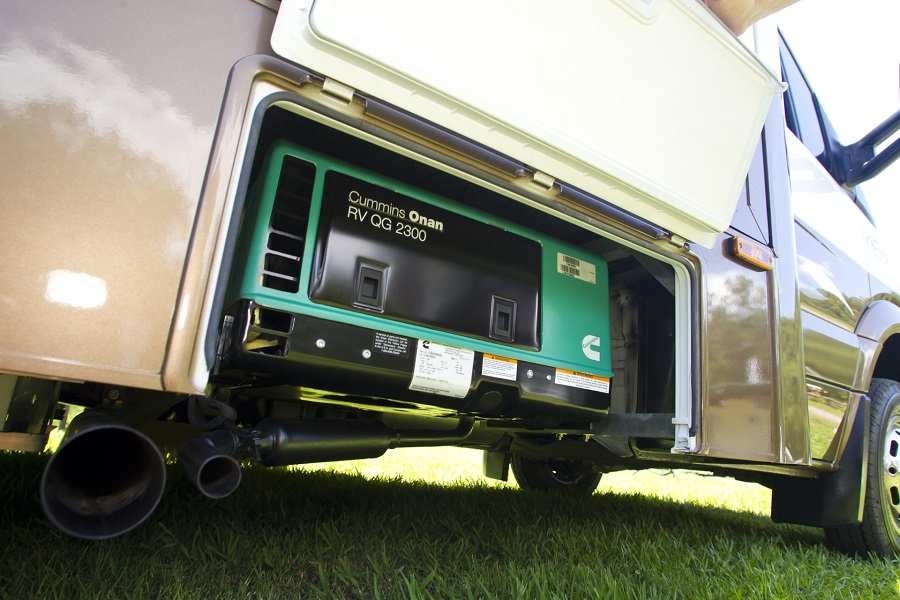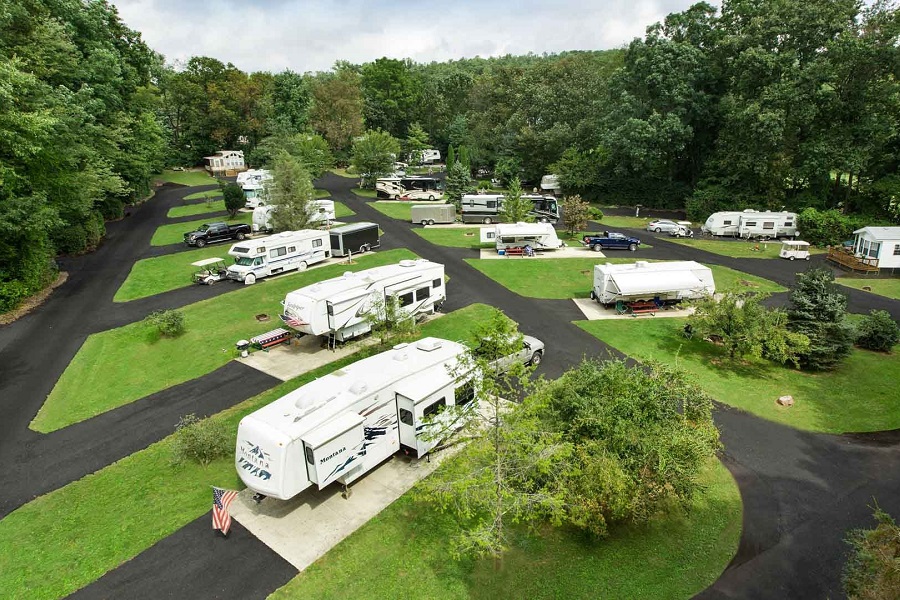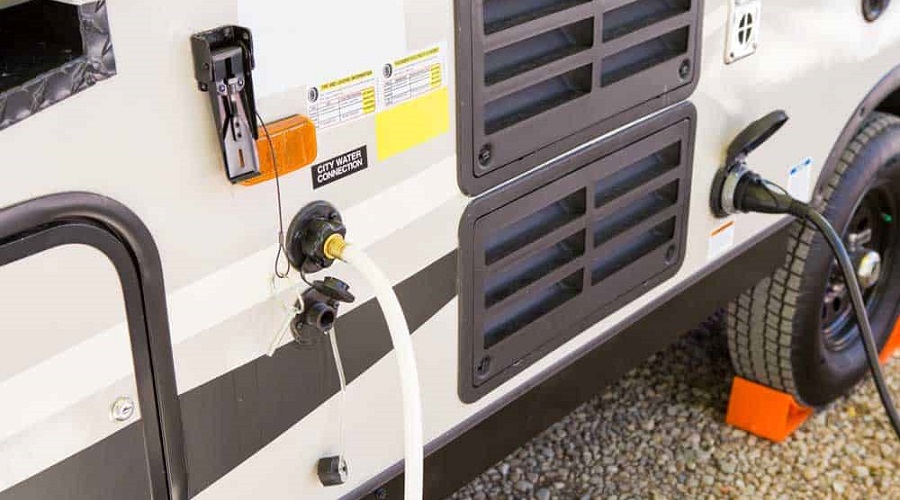Detecting RV refrigerator problems doesn’t have to be a significant issue.
With or without a manual, a few guidelines can help you become close to an expert at RV refrigerator repair.
Before you become too enthusiastic about being an RV refrigerator repair expert, you will need to identify the problem. Once that issue is taken care of, you will need some tools to help you conduct repair work.
You can confidently use this guideline to resolve some of the most common RV refrigerator repairs and continue your journey in comfort. However, some repair work can be challenging for someone without experience, and some faults require expert attention.
Detecting the problem

When your RV refrigerator isn’t working, it is helpful to know that it is different from a home refrigerator.
You will typically find that RV refrigerators run on electricity or propane instead of using freon or a compressor.
RV refrigerator repair work relies on the understanding that the cooling unit operates by heating hydrogen, ammonia, and water which extract heat from the inside of the refrigerator, resulting in inner cooling.
Once you appreciate the inner workings of this refrigerator type, you can begin troubleshooting when it doesn’t cool properly.
For troubleshooting problems, you can check the following for any RV refrigerator repair work:
- Obtain the refrigerator manual or browse the internet for the refrigerator model to obtain the correct manual online.
- Ensure the refrigerator is level as ammonia sediment will build up if standing at an angle.
- Check the power outlet to see whether other electrical devices work as part of the elimination process to identify the problem.
- If your refrigerator has LP alarms, check whether these indicate the type of problem you should investigate.
- Test a three-way refrigerator with a 12-volt DC or a 120-volt AC using a multimeter. Always wear protective gloves when testing electricity as this is a dangerous activity for everyone who lacks experience working with power.
- Ascertain whether the refrigerator is getting too warm or freezing up.
- If you detect ammonia in the air, it is leaking from the cooling unit, and you should switch the refrigerator off immediately. Keep the refrigerator door closed and open all the windows in the RV. Determine if the RV is still under warranty and check with the supplier where to fix it or take it to an expert if the warranty has fallen away.
After replacing the gas, fuses, and cleaning the refrigerator, and it still doesn’t work correctly, your next step is to obtain expert assistance.
Tools and equipment needed

If you are sure that you can fix the refrigerator, you will need a few tools to help get the job done.
Here are some of the tools and equipment to gather in case you need to do any RV refrigerator repair work:
- Multimeter to check electricity.
- 12-volt circuit tester.
- Level to check that the refrigerator is evenly balanced.
- A selection of screwdrivers, spanners, wrenches, and Allen keys to work on your refrigerator unit and gas tank and for general purpose work.
- Protective gloves for working with electricity.
- A shop vac.
A step-by-step guide to RV refrigerator repair
This guide addresses several refrigerator issues such as electrical, gas, icing up, overheating, and leaking problems.
When none of your RV refrigerator repair efforts resolve the problem, you will need to call on expert help. If you are not confident about working with electricity or gas, use extreme caution or take the refrigerator in for a professional solution.
1. Electrical problems
If your refrigerator stops working and runs on propane but not on 110V of power, it has an electrical fault. If you do not have the manual, search for one on the internet.
Check for any circuit breaker trips in the RV electrical box and reset these. You will find the circuit breakers behind the refrigerator. If the problem continues, there is a potential problem with the RV power board, or some electrical component is overheating.
Burned wires are an obvious sign of an electrical fault. If all the circuit breakers and fuses are all working and there is no apparent damage to the wiring, check the power outlet. Plug in another appliance to see whether the fault is with the refrigerator or the outlet.
After fault checking these issues and everything is in order, you can use a multimeter to test the current. If the refrigerator is powered three ways, use a 12-volt circuit tester to check the electrical current.
If you still cannot pinpoint the problem, check the heating element. The heating element either runs on 12-volt DC or 120-volt AC. Only use protective gloves to check this element. If you don’t have protective gloves, you will need professional help to conduct an RV refrigerator repair, as it is dangerous to complete this work yourself.
2. Gas issues
If the refrigerator operates on 110V of power but not on propane gas and is no longer working correctly, your first step is to determine whether the tank contains gas and the valve is open. Also, check that all the LP alarms are connected and functioning if your RV has this feature.
If the tank contains gas, the valve is open, and the alarms are working, the next step is to check whether the thermocouple works. The thermocouple design controls the gas flow and identifies heating on the valve. A sign that there is a thermocouple problem is when the burner or pilot light works but doesn’t stay on as it should. Replace the thermocouple if this is the problem.
A thorough cleanup may get the refrigerator back on track, especially if the burner light doesn’t work at all. Alternatively, the problem may be as simple as some waste preventing the flow of propane through to the burner.
The blockage may be in the gas line or the burner, and you can use a shop vac for a quick cleanup. If you don’t have this equipment handy, you can use a standard vacuum. Remove the metal cover from the burner and vacuum it to clean out waste matter. An alternative is to clear the burner hole using a piece of thin wire. If the flame still doesn’t catch, you need expert help.
3. Fixing ammonia sediment or leaks
Switch off the refrigerator if you smell ammonia, and the unit isn’t cooling. Ammonia sediment can build up in old refrigerators or those unused for long periods as the ammonia leaks into the unused unit.
Ammonia sediment can leak into the fridge or the cooling unit and prevent cooling as it needs to circulate through its enclosure to maintain cooling.
Ammonia sediment is typically a sign that the refrigerator has seen better days, and it is time for a replacement. You can try and get a little more use from the fridge by turning it on its head and leaving it upside down for several hours. This action might encourage the ammonia sediment to drip out and get the refrigerator back to cooling for a while.
If you notice that the liquid leaking from the refrigerator is yellow, the ammonia in the cooling unit is leaking. The steel tubing around the cooling unit may have been corroded by ammonia, in which case a new cooling unit is necessary.
You can choose to tackle a cooling unit replacement alone or get an expert to do the job for you. Cooling unit replacements are tough jobs to do by yourself, so you may want to opt for an expert RV refrigerator repair job if you need the refrigerator to be functional soon.
4. Fixing a leaking refrigerator
Adjust the settings to avoid too much freezing or prevent the refrigerator from getting too warm. If this action does not prevent leaking, then defrost and clean the fridge to check whether the moisture continues to build up.
Check the drainage hose as well, as a blockage or damage will cause leaking. You can try taping the hose damage or purchase a new refrigerator hose.
5. Refrigerator cooling unit repair
An RV refrigerator repair for a cooling unit that keeps freezing might require a simple fix. A frozen cooling solution typically occurs when the refrigerator is exposed to extreme cold in a short time, causing the cooling solution to solidify.
Check that the cooling solution hasn’t frozen and is causing the refrigerator to warm. Leave the fridge outside to heat up to see if this is the problem. If the outside heat doesn’t solve the problem, call a professional.
Conclusion

Regular RV refrigerator repair work can be avoided with routine maintenance of the unit.
If a refrigerator is old or has been out of use for long periods, standing can cause it to be faulty. A simple issue like the refrigerator not standing on a level surface can also cause inconvenient problems.
Now that you know more about troubleshooting RV refrigerator problems, you can prepare a toolkit to fix fundamental issues. Should you feel that repair work is too complex, you can always rely on a professional for help.
But, if you are far from professional refrigerator repair people, a few fundamental guidelines can save the day.
Resources:



